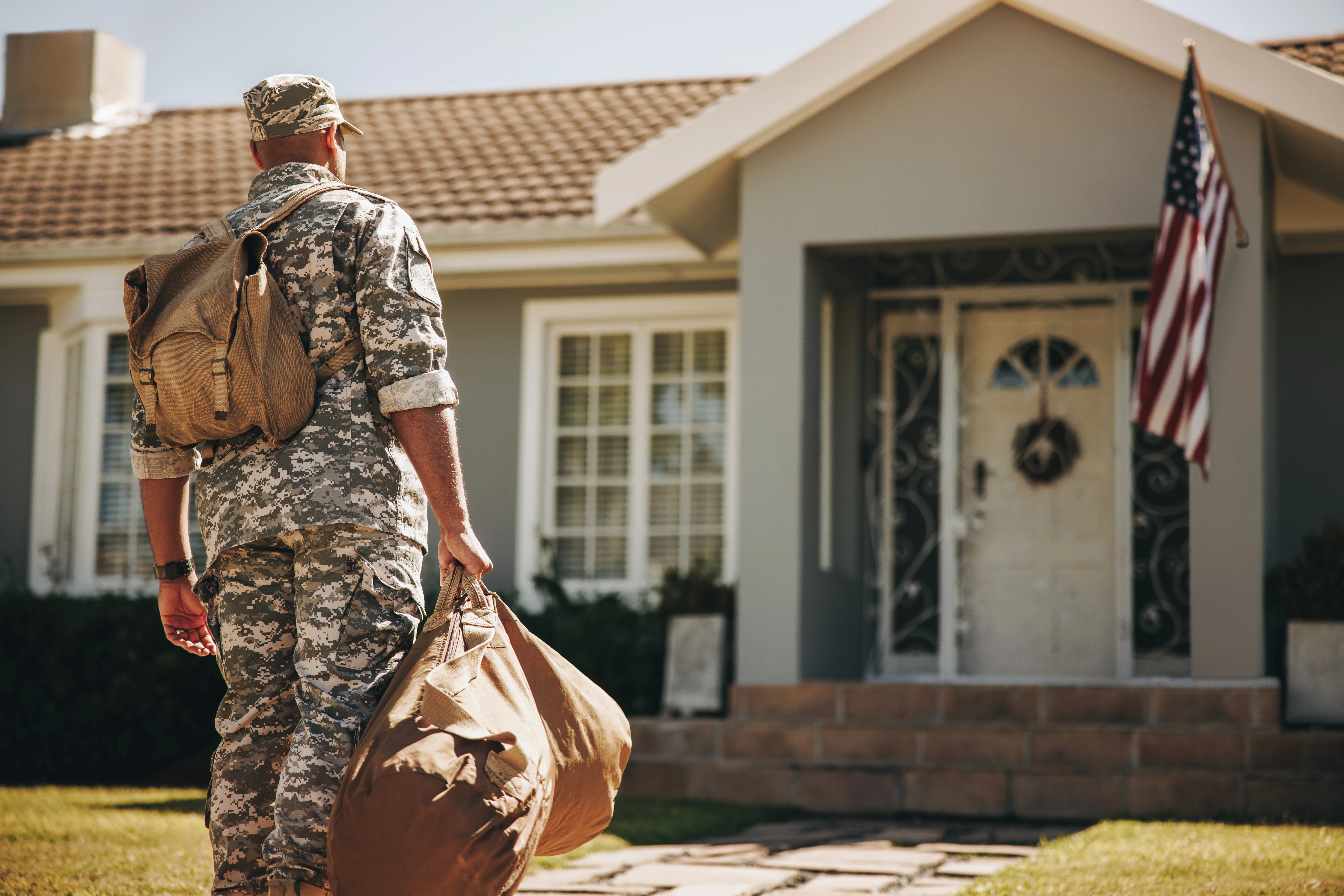Every year about 200,000 people leave military duty and transition to civilian life. While it might seem as simple as leaving one career field and starting in another, the transition to civilian life can be much more overwhelming, frustrating and discouraging than just switching jobs.
Military transition to civilian life – What makes it hard?
As with any challenge, some people are able to adjust to change relatively effortlessly while others struggle with similar changes. Transitioning out of the military is no different.
Certain factors, according to a study done at Pew Research Center, can help you determine what you may encounter when transitioning to civilian life. According to the study, “While more than seven-in-ten veterans (72 percent) report they had an easy time readjusting to civilian life, 27 percent say re-entry was difficult for them—a proportion that swells to 44 percent among veterans who served in the ten years since the Sept. 11, 2001, terrorist attacks.”
Additional factors that make the transition hard include:
- Experiencing a traumatic event or serious injury
- Being a married post-9/11 veteran
- Serving in active combat
- Knowing someone killed or injured
Additionally, the study also researched factors that enabled an easy transition, and these factors included:
- Being a post-9/11 veteran with religious beliefs
- Being a commissioned officer
- Having a clear understanding of one’s mission/responsibilities while enlisted (as opposed to those who did not have a clear understanding of their duties)
- Having previously graduated from college
If your time in the military included any of the challenges from the first list, you may need to take extra time preparing for the transition, including preemptively lining up a job, getting situated with a veteran program, establishing a social support system and having a plan for how to handle stress.
How can I ease the transition?
It is absolutely crucial to the transition of military to civilian life to have a plan before leaving. You’re likely already experiencing stress and anxiety at the prospect of this life change, and if you also struggle with symptoms of PTSD or depression related to incidents in the military, having a post-military game plan is crucial for your success. Explore all that Veterans Affairs offers for transitioning veterans by clicking here.
Consider a mentor
Transitioning to civilian life is hard to do alone. Having a mentor can significantly help the transition and provide you with valuable insights.
Mentors are men and women who have been through the transition themselves and can offer valuable advice regarding what to do, what not to do, what worked for them in the transition and other helpful resources you might consider tapping into to benefit your mental wellness.
Get connected with a veteran program
Veteran programs are designed to help those transitioning out of the military navigate certain aspects of civilian life, including obtaining certain benefits, helping with job hunting and even furthering education through college-assistance services. Getting connected with a veterans program can also put you in touch with others going through this transition as well.
Work on building a community for yourself
Your tight-knit military family is a unique bond and, unfortunately, one that is difficult to find in civilian life. There are plenty of ways you can begin building a community around you, including:
- Getting involved in a support group for veterans, can help you learn to cope with mental health challenges, connect with others who share similar experiences and build camaraderie in a healthy setting
- Volunteering for local programs like parks and recreation departments, children’s sports clubs/groups or other community-based events can help you find that element of teamwork and service most common in military life
- Reaching out to friends and family to meet for coffee, dinner or other social events
Having a community to rely on can give you strength and perseverance during the harder days of the transition.
What about mental health support?
There is no denying that stress, combined with whatever mental health challenge you might already face, can lead to some unpleasant symptoms for anyone transitioning through a new stage in life. Veterans are no exception, and it’s not uncommon for these individuals to struggle particularly with substance use and other unhealthy coping mechanisms as a result.
The Veterans Affairs Community Care Network (VA-CCN) is a network of facilities that are pre-approved to accept veteran benefits for behavioral healthcare treatment, giving vets faster and more convenient access to care. The Community Care Network (CCN) uses industry-standard guidelines to administer treatment and pay for services.
Get started today
If you’re ready to give your mental health a boost as you enter civilian life, reach out to Silver Ridge Recovery today. To learn more, contact us by calling (855) 945-7788 to speak with an admissions counselor.



